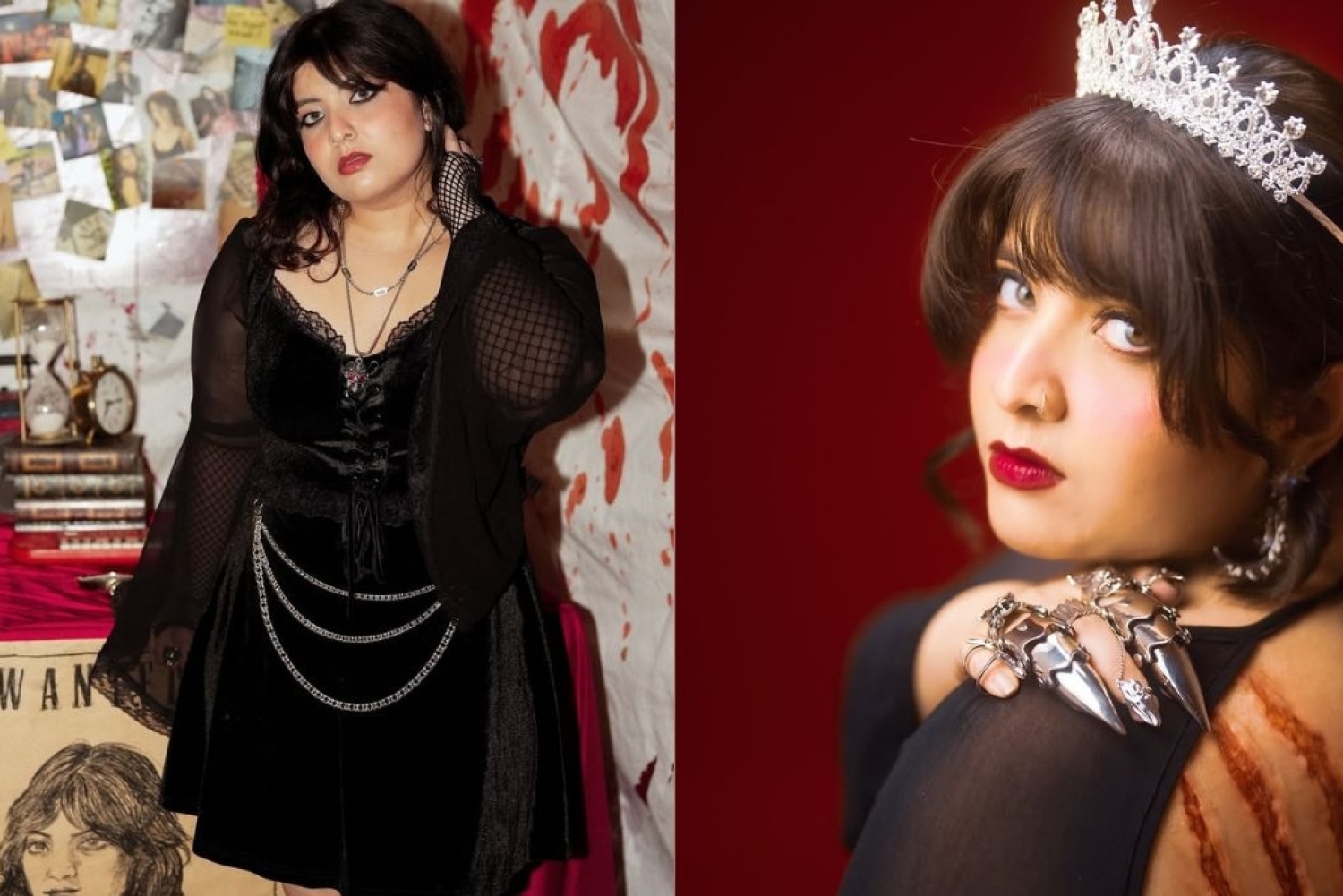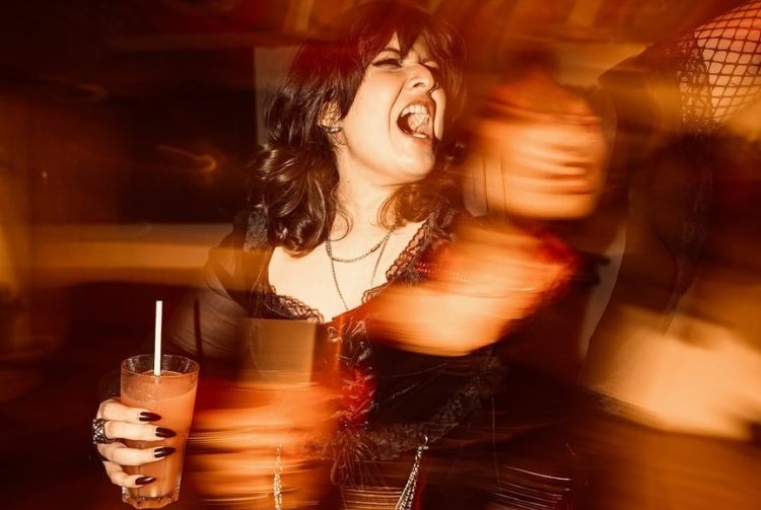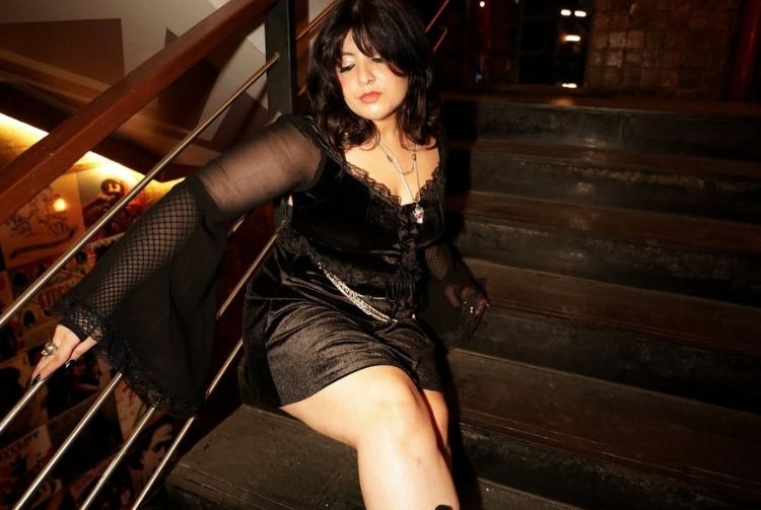
Photo Credits: Mafias Media, Visual Grams

Photo Credits: Mafias Media, Visual Grams
Hanita Bhambri’s journey as an artist has always been rooted in introspection. Her work often described as emotional, soft-spoken, and lyrically sincere, leaned into acoustic textures, usually drawing from indie pop influences. But for her, Shoharat, her debut album, was a turning point.
The project trades acoustic guitars for distortion, and delicate storytelling for something sharper. Hanita is approaching emotions differently: with more grit & less filter. The shift is both sonic and internal. The album explores difficult experiences, career disillusionment, and emotional burnout, but not from a distance. It’s a body of work created within those moments as they unfolded.
In this conversation, Hanita reflects on the process of making Shoharat, what it forced her to confront, and how she’s come to understand her music and herself differently in the aftermath.
The Headspace That Gave Birth to Shoharat
Shoharat came from a place of a lot of anger, rage, and angst. I was in a very emotionally volatile space. While being in that headspace, I moved to Mumbai, leaving my family, my friends, my dog, everything that was familiar. On top of that, I was grieving a six-year relationship with someone who was everything to me and was suddenly a stranger, a ghost in my life. I was also dealing with the havoc of getting off antidepressants. My mental health had improved, but I was now seeing the aftermath of the effect it had on my body, and trying so hard to get back in shape. I was putting my body and mind through everything to be better. As an artist, I was desperately trying to seek validation from the industry. A few months later, I was dropped by my management and found myself sitting in the rubble of a version of my life I thought I wanted and realizing it was all a façade. I just felt pathetic. And songwriting became my shield, my armour, my weapon, the only way I could exercise my power.
That excruciating pain and anger of two years alchemized itself into songs. That’s why I call this album a map of my emotional survival. It’s extremely confessional, and I’ve said things on the album that I don’t think I could’ve ever said to anyone’s face, and it was eating me alive until I got it all out. I don’t see the songs the same way anymore. They don’t come with their emotional burden when I listen to them now. I think the emotions that consumed me lost their power once I put them to paper. When I look at my life now, I feel a lot steadier. I’m not entirely fixed, but I’m so proud of what I’ve created, despite being royally screwed over by the very people I blindly trusted and respected. I’m happier, more comfortable in my skin, and more confident about my music and my songwriting. But I also have more walls, for good measure.

The Evolution of Sound
My earliest music was melancholic and often acoustic/folk-driven. I gravitated more toward acoustic guitar sounds, the tambourine, and the ukulele. I was hugely inspired by Damien Rice growing up. I have always loved making music, but I loved it so much that it was burning me up on the inside, and I just wanted to run away from what was familiar. The very first session I did with Sagar Dhote (who produced 9 out of the 11 tracks on the album), I told him, "I don’t want to sound like anything I’ve ever made."
It’s like how your home reminds you too much of memories that bring pain, so you pack your bags, change your name, and leave to go live in a city where no one knows you. I just wanted to run away from myself. I hated the version of myself who endured everything without saying a word. All that became soundscapes. I experimented with house music, rock, hip hop, ambient textures, and horror-inspired elements. And we called it dark pop. Somewhere, I stopped asking, “Will this be liked?” and started asking, “Is this me?” That changed everything.
I don’t know if this is my sound, but I know this album sounds exactly like everything I dreamed it would be. Every element of production, visuals, and songwriting is from the deepest parts of my soul. And I’ve honoured my emotions like never before.
The Industry and Its Complexities
It’s complicated. I think we’re in a situationship or something, haha. The industry often rewards what’s safe and formulaic and I don’t fit neatly into that. Most of my songs on the album are four minutes long. It’s genre-hopping and experimental. It’s not a set of heartbreak sad songs or pop-y love songs. It’s layered, it’s sarcastic, and it’s dark. I think when they see proof of concept, and if the music picks up and creates an impact, that’s when things will shift. I’ve found that if you stay consistent in your truth, the industry does eventually start to listen. I also think the gatekeepers are shifting. Listeners are smarter. They want music that moves them, that tells a story. Ultimately, listeners dictate what they want. And I’m here to make music that punches you in the gut, not sit pretty like background noise.
Songwriting and Protecting Creativity
Writing is still the most sacred part. It always starts with just me, a melody, a feeling I can’t contain sitting in the dark with a piano or a guitar, the voice memo recording on my phone. Even when production gets bigger, or visuals get more elaborate, the seed of it is always planted alone, in silence. Songwriting is and will always remain my favourite part of being an artist. I disappear often. Ghost everyone on Instagram. I also remind myself that I’m not a content creator, I am an artist. And my job isn’t to be seen all the time. Art takes time. Yes, marketing is important, but you have to do it in a way that’s creatively fulfilling for you. And burnout can be very real. I also delegate a lot of the work that I hate, so I can stay focused on what creatively fulfils me.

What's next?
Rest. I’m so tired, haha. I’ve poured so much into this album that I need to pause and breathe. But I’m also already writing again (I cannot stop; I have a problem). Something sappy might be coming. Or maybe something even darker. Who knows :)
Words Harita Odedara
17.07.2025